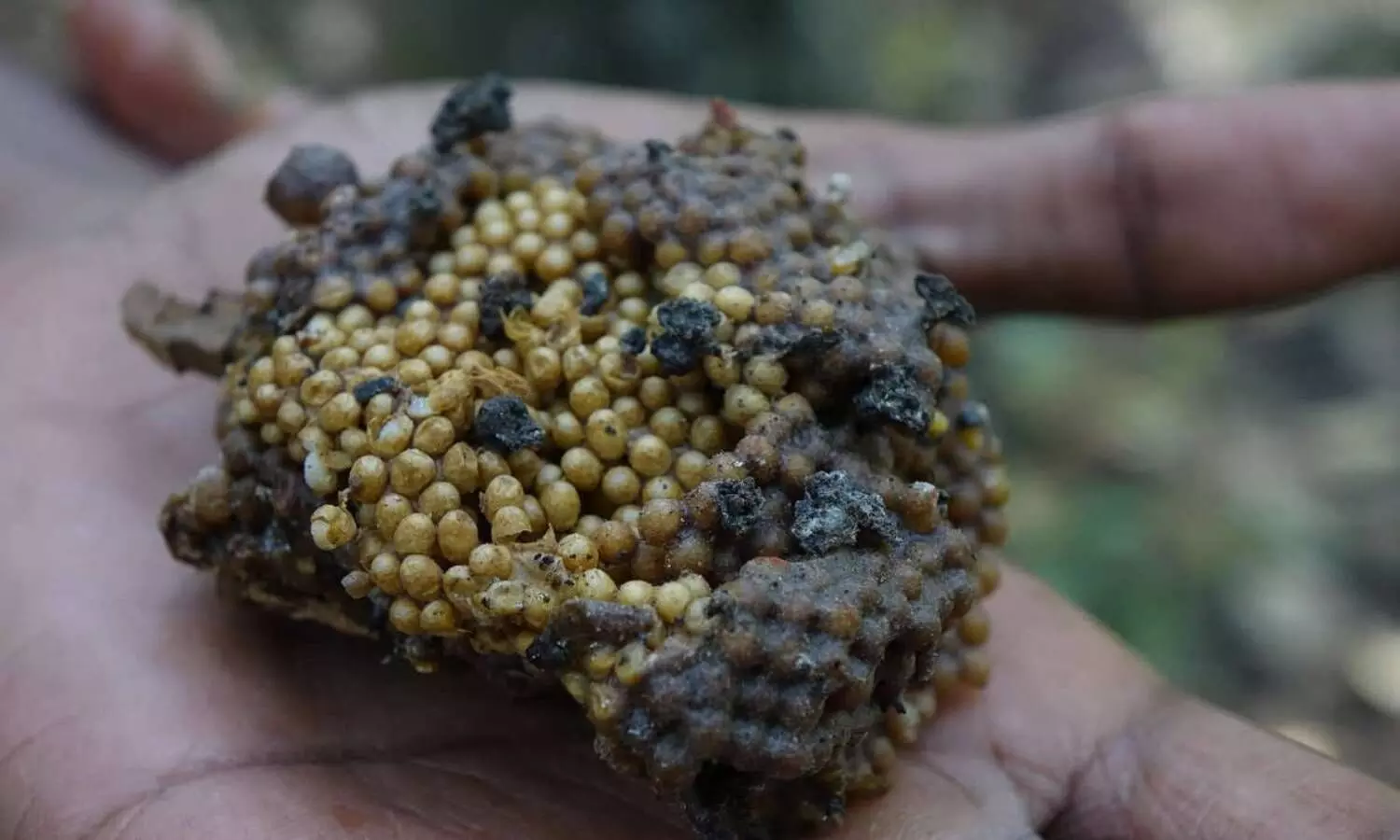Sour honey! Tease your taste buds with organic nectar of Nallamala Forest
Honey being their staple diet, the lifestyle and tradition of Chenchu tribal people revolve around this sweet, syrupy liquid.
By Nimisha S Pradeep
If you are a newly married lady visiting the Nallamala forests, the Chenchu tribes are going to accord you a sweet-sour warm welcome, literally. They take you right into the forest and serve you 'Kanugula' honey, one of the rarest and tastiest honey varieties available in the forests of Nallamala.
"It's a tradition to give Kanugula honey to newly married wives," says Thokala Guruvaiah, a 50-year-old Chenchu tribal man living in Attappur Chenchu Penta (Chenchu villages) inside the Amrabad Tiger Reserve.
Honey being their staple diet, the lifestyle and tradition of Chenchu tribal people revolve around this sweet, syrupy liquid. Wait, what's even more fascinating is that, not just sweet honey; there is a sour variety of honey also found in the Nallamala forest.
According to the Chenchus, there are five varieties of honey found in Nallamala -- Peedha Pera, Thodedi, Musari, Chena Pera, and Kanugula. Each of these is produced by honey bees of varying sizes and hence their availability also differs.
Peedha Pera or rock honey is collected from big honeycombs found in giant rocks and trees. "It required a lot of effort and teamwork to collect Peedha Pera. We use ropes and other tools to collect this kind of honey found in rocks," says Guruvaiah. Peedha Pera, seasonal to April-June is found in large quantities i.e. around 5 to 6 kgs from one honeycomb.
Thodedi, the second variety, is found in box-like honeycombs on trees. From November to December, this variety is never found in the same place. Every year, it's collected from different places.
Due to their frequent availability, Peedha Pera and Thodedi are the most consumed honey varieties by the Chenchus of Nallamala. These varieties also have medicinal qualities.
Musari, the most fascinating sweet and sour tasting honey variety, is produced by very small honey bees. "They are smaller than mosquitoes," says Guruvaiah.
Found inside holes in rocks, musari honey is available throughout the year. "It's also applied as a medicine on fractures," explains Guruvaiah. Another interesting fact about this variety is that every year it is found in the same place.
When the same honey is made by small baby bees, it will be completely sour. "It tastes just like tamarind. But I don't know why it is so," says Guruvaiah.
Chena Pera is also produced by small bees and is available during the July-August months.
Kanugula, the rarest variety is the tastiest of all. "It's very tasty but very hard to find. Since it's rare, we use it only on some special occasion or to gift to someone special like son or wife," says Guruvaiah. From one honeycomb of Kanugula honey, only 50-100gms is obtained.
Some of these varieties are also given to children to have a sweet voice.
During the season, Checnhus take honey for one meal every day.
#Watch: If you are a newly married lady visiting Nallamala forests, the Chenchu tribes are going to accord you a warm welcome. They take you right into the forest and serve you 'Kanugula honey', one of the rarest and tastiest honey varieties available in Nallamalla. But wait cont pic.twitter.com/zONFrNxtHu
— @CoreenaSuares (@CoreenaSuares2) November 25, 2021
Collection of honey
"We Chenchus know how to trace the bees and spot honey," says Guruvaiah. Living in the forests for ages.
Chenchus have the traditional knowledge and skill required to collect honey."We do not harm the bees to collect honey. They are giving us honey. So we ensure that there is no loss to their lives," says Guruvaiah.
Chenchus normally burn small twigs or leaves and use the smoke to shoo away the bees. Once the bees fly away, they collect honey.
A gap of 3-4 months is given for the honeycombs to develop. They generally collect honey for their own consumption. Only if there is excess after sharing it with their neighbors, they sell it at the Girijan Cooperative Corporation (GCC).
Chenchus are not primarily agriculturists. Their lives are dependent on forest products. Besides honey, they collect gum, fruits, leaves, roots among others. "Forests are like our mother. We protect the forest. They give us everything," adds Guruvaiah.